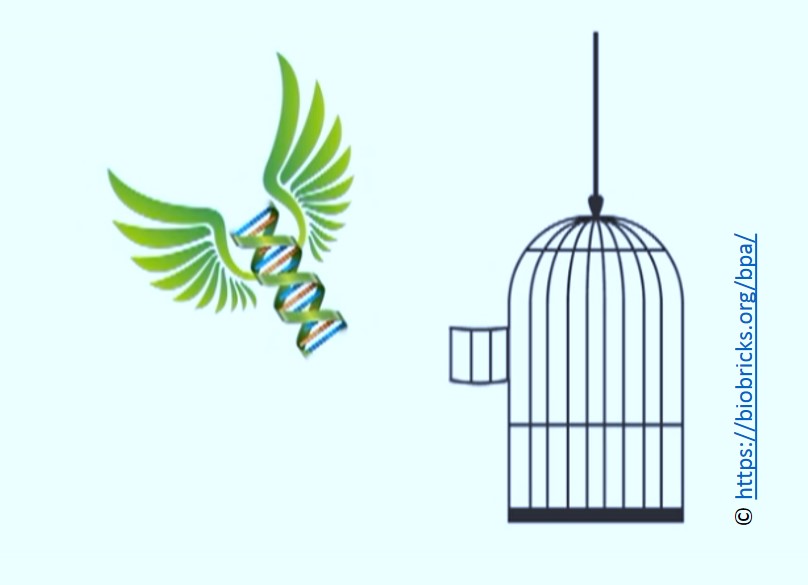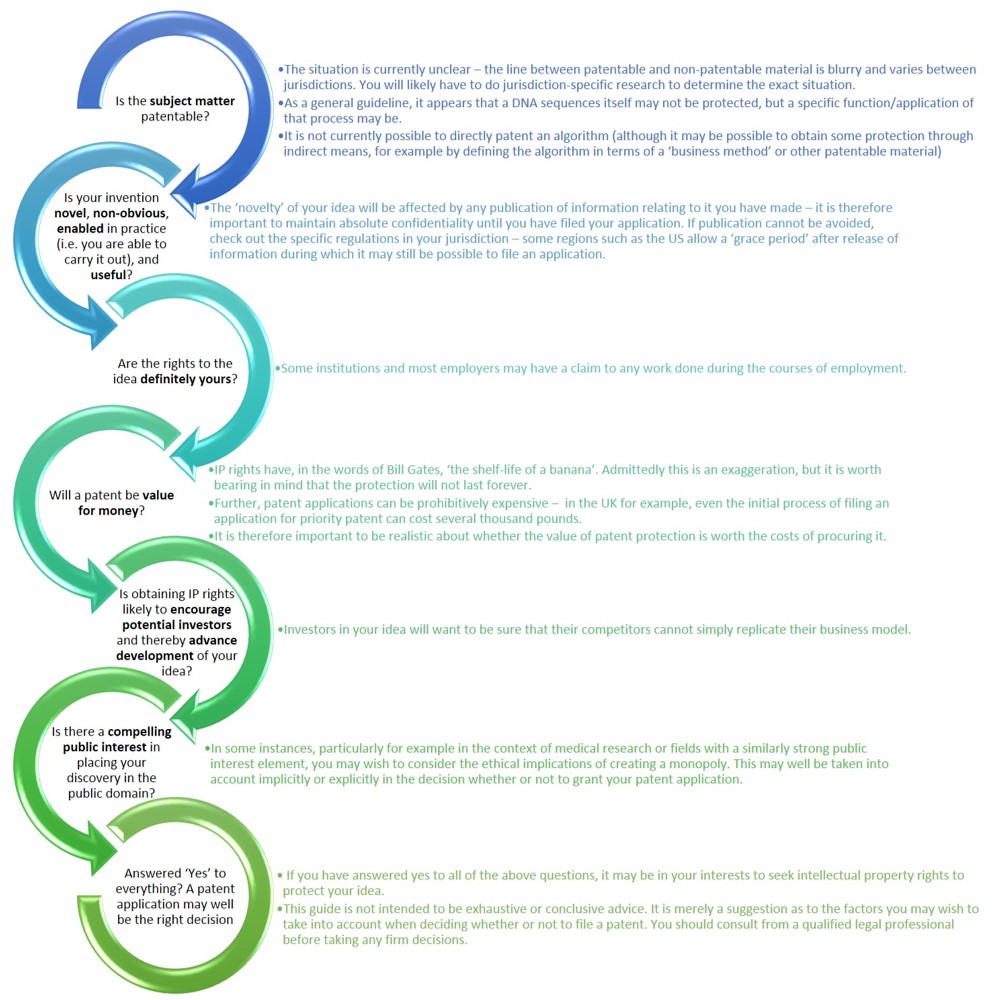Team:Oxford/topsecretIPpage
From 2014.igem.org
Intellectual Property
Intellectual Property is an increasingly important and controversial aspect of scientific advance, and synthetic biology is perhaps the paradigmatic area illustrating the effects of this growing legal influence. When thinking about how teams could turn their ideas from iGEM projects into viable real-world solutions, we realized that intellectual property is a crucial area to address. Our team has produced a report exploring how teams can approach this task and how iGEM intellectual property policy can make the transition easier.
We begin with a brief overview of current intellectual property law (specifically relevant to the UK) before progressing to look at the challenges this poses for the iGEM competition. A number of different approaches which iGEM might choose to adopt towards intellectual property are discussed and the pros and cons of each are assessed. We then asked a range of interested groups, including iGEM students, professionals, and the public, for their views before arriving concluding with recommendations for addressing intellectual property concerns in iGEM. We offer our conclusions in the form of advice to students, to the iGEM foundation, and briefly explore how a change in the law could have consequences for iGEM. This advice is purely based on our own views and our research which we hope will make interesting food for thought - it is not professional legal advice and should not be relied on as such!
This page features summarises the conclusions the report; the complete document can be downloaded below.
iGEM Policy
There are four main types of intellectual property - patent, copyright, know-how, and business secret. <p> The table below compares the benefits and possible drawbacks of each...
Team Policy
Dealing with intellectual property is not only necessary on a competition-wide level - each team must also make decisions as to how they wish to deal with the intellectual property they will acquire during the course of their project. Deciding whether to file a patent application can be a tricky decision - below are just some of the factors you might want to take into consideration...
We conducted a survey of attitudes within iGEM teams to intellectual property. The results, illustrated below, are analysed in detail in our report. Broadly, we found a noticeable lack of understanding of IP issues (confirming the findings of ??? iGEM team in ????), and a great deal of social mindedness in the responses.
-
 What is your primary source of information about synthetic biology?
What is your primary source of information about synthetic biology?As we can see,
-
 How would you rate the quality of this information?
How would you rate the quality of this information?The respondents rated information highly for accuracy (although perhaps this is to be expected as it is unlikely one would continue to read information from a source which regularly got the facts wrong). Relevance also scored highly, showing that people feel synthetic biology has a sufficient impact on their lives that they ought to be kept informed about it. The high score for availability is likely due to the heavy reliance on online information, however it is probable that this reliance also contributes to the relatively low scores for independence and accessibility. The sources accessed by the public online may well not be aimed at laymen but intended to be read by students or professionals and so may contain a high level of technical detail not accessible to the lay public.
-

The majority of teams (85%) appear to feel that there is at least the possibility that their project could be turned into a viable business or project – this makes sense given that many teams seek to use their project as an opportunity to use synthetic biology to address a problem. -

Again this chart shows how few teams believe their project is relevant to society. There was a split, slightly skewed towards commercial investment, in terms of the favoured means of funding, although it should be noted that many participants selected more than one option, suggesting mixed feelings and uncertainty on this question. Donation to the public domain was a popular option, indicating that many students support the BioBrick agreement and are keen to contribute their parts to it.
-
 How does your level of understanding about synthetic biology affect your concerns about its implications?
How does your level of understanding about synthetic biology affect your concerns about its implications?This graph shows correlation between .
-

-

The graph below shows that profit is the least important considerations to students, but all others ranked more or less equally overall. The most important factor overall was benefit to society.
Government Policy
Incentivising Innovation
Early studies based on data from individual countries found that patents positively influenced innovation by 15-25%. 2
Encouraging Openness
Creation of Monopoly
Other research expresses concern that patents on initial discoveries may delay, hamper, and deter innovations building on this patented work. 3
...But the paper warns against the dangers of continuing to analyse IP issues from within the 'innovation versus access' paradigm/dichotomy.
 "
"


